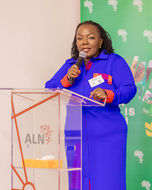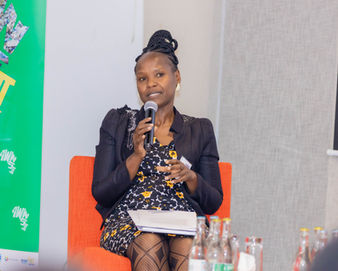
THANK YOU!
TO ALL OUR DELEGATES, PARTNERS AND SPONSORS
For being part of our 2nd series of the Africa Waste Is Wealth Summit
#AWWSII













Partners and Sponsors
H.E. Hon. Dr. Wilber K. Ottichilo
Governor, Vihiga County, Kenya
Hon. Alfred K'Ombudo
Principal Secretary, Trade, Kenya
Mrs. Mary Ngechu
Founder, Takataka Ni Mal
Dr. Mamo Boru Mamo
Director General, NEMA Kenya
Ms. Leigh Stubblefield
Deputy British High Commissioner to Kenya
Mr. Luck Ochieng
Managing Director, Unilever East Africa
Mrs. Carole Kariuki
CEO, Kenya Private Sector Alliance
Dr. Valentina Russo
Senior Engineer, Council for Scientific and Industrial Research, South Africa
Mrs. Rosa Nduati
Managing Partner, ALN Kenya
Panel
Exploring Opportunities for Community Engagement in Integrated Waste Management
Panel
Community Voices on Integrated Waste Management
Panel
Driving sustainable organic pollution-control strategies through trade
Panel
The Role of Plastic Credits and Outcomes-Based Financing in National EPR & waste Regulations in E.A
Panel
Waste Management Regulatory Framework
Panel
The Global report on living income and the Case Study of Project STOP in Indonesia
Featured Keynotes
Outcome
Africa Waste is Wealth II Report
Following the momentum of the landmark Africa Waste is Wealth II Conference, a new report—Africa Waste is Wealth Report 2025—has been launched to showcase the continent’s growing waste crisis and the enormous untapped potential of a circular economy.
The report underscores a stark reality: Africa produces over 140 million tonnes of waste annually yet recovers less than 11%. With proper investment, innovation, and policy reform, this waste could contribute over USD 8 billion a year, create over 400,000 jobs, and reduce carbon emissions significantly.
The 2025 report builds on the dialogue, commitments, and partnerships formed at the 2024 Conference, where stakeholders from across the continent came together to reimagine waste management as a driver of inclusive, green growth.

























